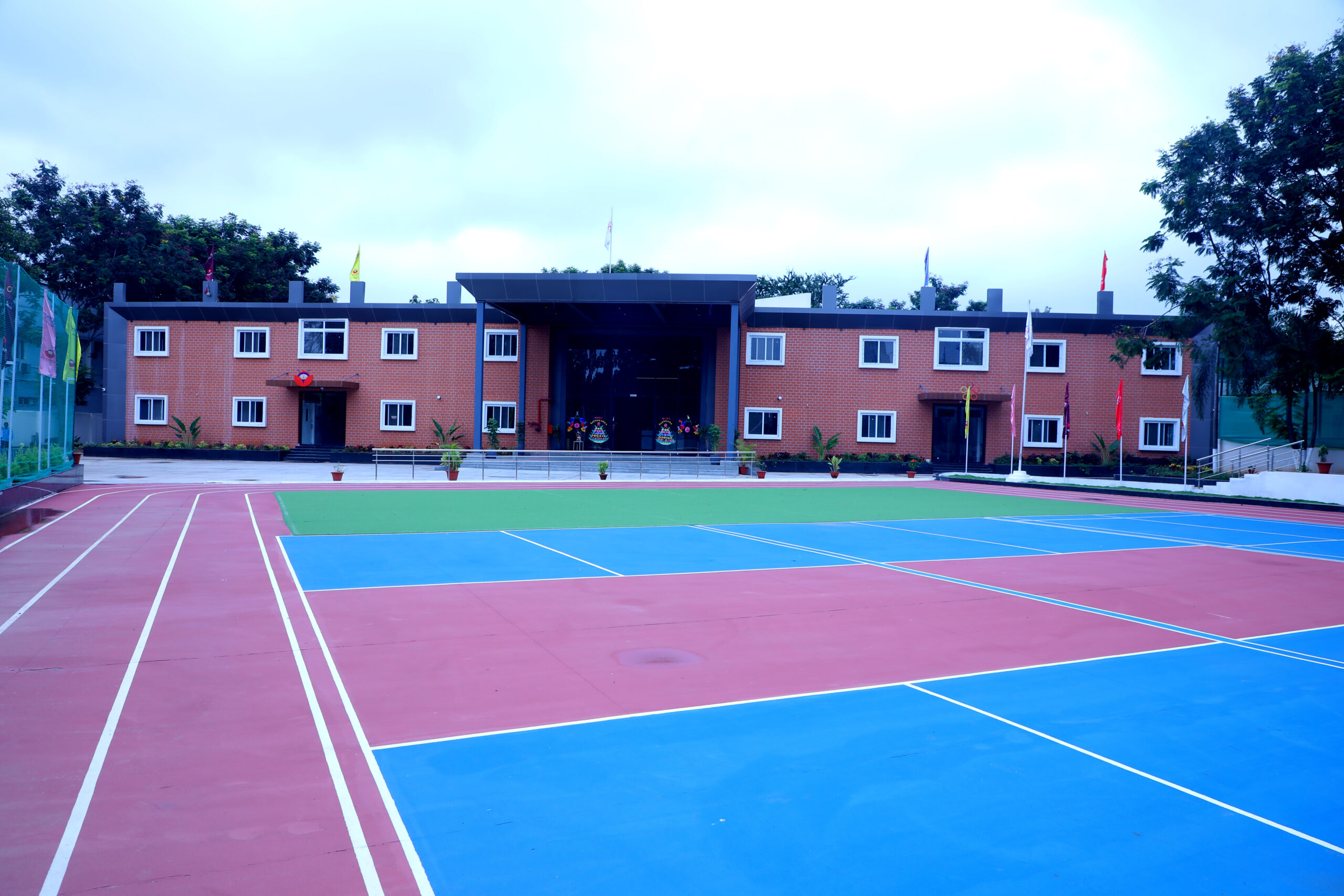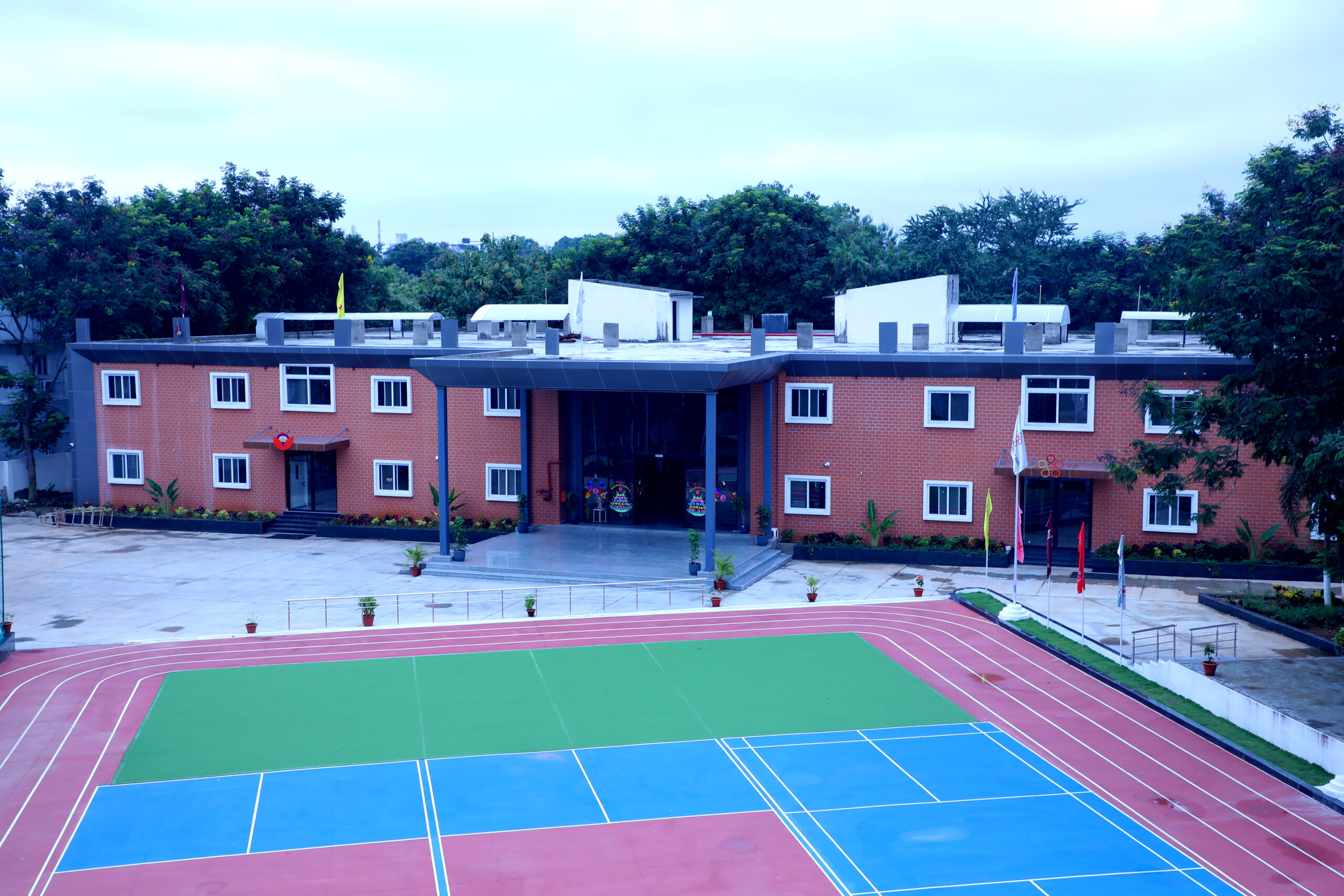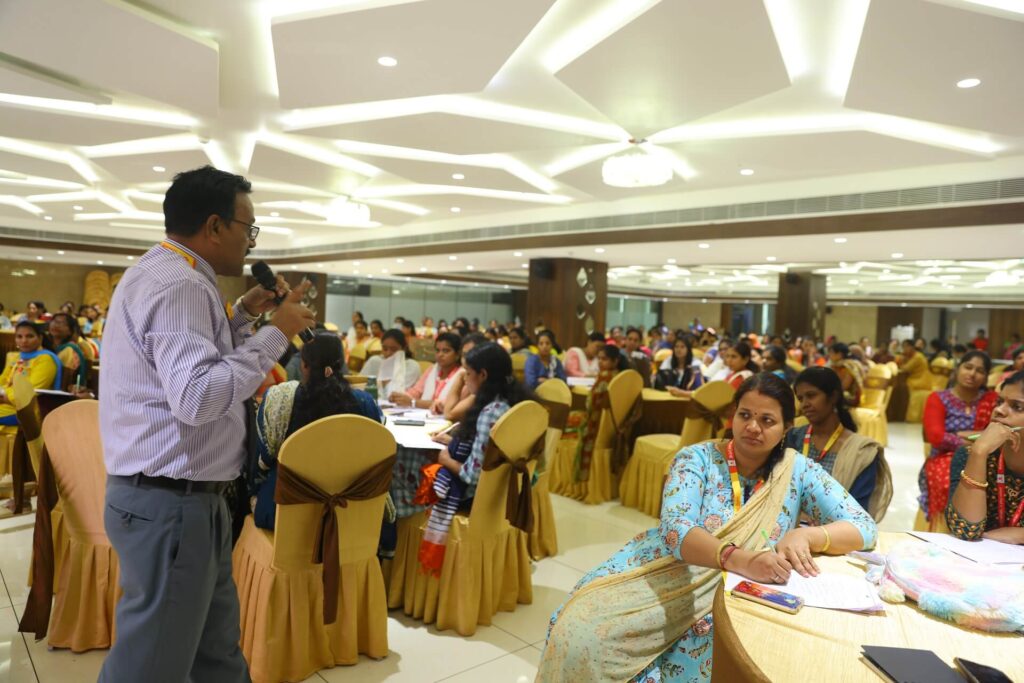Academics
Home / Academics

Home / Academics

The curriculum refers to the lessons and academic content to be taught to a learner in the school. In empirical terms, it may be regarded as the sum total of a planned set of educational experiences provided to a learner by a school. It encompasses general objectives of learning, courses of study, subject-wise instructional objectives and content, pedagogical practices and assessment guidelines. The curriculum provided by CBSE is based on National Curriculum Framework-2005 and seeks to provide opportunities for students to achieve excellence in learning.
At AHPS, our primary objective is the pursuit of quality in academics. Our R&D team comprises of prominent academicians, teachers, scholars, content developers and graphic designers who are passionately involved in conceptualizing the curricula until the final textbooks and academic material are printed
To augment concept building with learning experience, the curriculum is practice-oriented as per the national & international educational standards. Our textbooks are meticulously mapped and designed by our R&D experts to ensure experiential learning, within a class as well as along transition/progression in classes.
At AHPS, we believe that along with the primary subjects, interdisciplinary topics that relate to social, environmental, global and cultural well-being are also crucial for the holistic development of students. Incorporating these themes in activities and content embeds moral and humane qualities in them.

We work hard to foster academic excellence and individual all-round character. Critical thinking, compassion and a creative mindset are built into the program of the school. This focus on a student’s life means that academic prowess is always positioned alongside other important qualities. We guide and encourage students to reach their full potential and achieve excellence in all aspects of their lives, not just examinations and coursework.
The energy and diversity within the school community is a driving force in our students’ personal development. Shaped by our dedicated faculty, the dynamic school environment acts as a catalyst for achievement. Innovation and individualism are celebrated, just as outstanding academic success is applauded.
The Pre-primary education has been designed to facilitate learning through playful inquiry. We believe that playing is the foundation for intellectual, physical, and social and emotional growth. Learning should derive naturally from curiosity and exploration.
The classroom environment is designed for children to learn through play because research shows that playing is the way in which children engage their minds, organize their thoughts and store information using all their senses. Children are given a wide range of experiences, opportunities, resources and contexts to provoke, stimulate and support their innate intellectual dispositions—their natural inclinations. Children learn how to think deeply, to ask questions and to listen to ideas. They may go on field trips, participate in events, compete in competitions, build models, and create art to support their learning.
In Primary School, students gradually move from a developmentally based program toward a more formalized approach to learning. Children continue to learn by doing, practicing previously learned skills and acquiring new ones. Teachers encourage the development of learning dispositions such as working independently, participating actively in class, and demonstrating self-motivation. They endeavor to stimulate every child’s interest, curiosity and creativity, to challenge each student to fulfill his/her potential, and to promote a true love of learning.
Individual and group work in all core subjects is used to enhance students’ problem-solving, critical-thinking and logic skills. AHPS students come from many different schools and learning environments, and their learning needs are assessed regularly to ensure their success. Collaboration and responsibility are emphasized throughout primary school.
For Middle School, we have identified curriculum goals considered essential to the learning process and development of 10- to 14-year-old. These goals are the source from which specific subject-based skills flow.
In their middle school courses, students in Grades 5-8 engage in the process of meeting the essential curricular goals. Middle school students strive to be independent learners and acquire a range of thinking skills, comprehension, interpretation, extrapolation and synthesis. They learn to read for comprehension and appreciate a variety of reading materials. Middle school students apply mathematical skills and concepts to relevant academic and real-life situations and apply scientific principles, skills and attitudes to problem-solving. They acquire and use reading, writing and speaking skills in another language. Middle School students are encouraged to recognize the need for a healthy body and mind, and to express their creative potential through the arts.
The Middle School believes it is essential for students to make connections and see relationships among various subject areas as well as in the outside world. They are encouraged to acquire the required life skills to organize projects and themselves. They learn to locate and research information using a variety of means and to use technology as a tool to enhance the acquisition, analysis, communication and presentation of information.
The Middle School offers field study experiences appropriate to the school’s curriculum and to the students’ developmental needs. These trips make the best use of the school’s unique location and provide outstanding learning experiences that are an integral part of the school’s curriculum.
This methodology combines the experiences of group work in the classroom with individual learning in Media Labs, so that collaborative and autonomous work is facilitated.
Our High School Program has been designed to address the intellectual, social, emotional and physical well-being of students. It aims to help students develop physically, intellectually, emotionally and ethically, develop the skills and a positive attitude towards learning that will prepare them for higher education, undertake in-depth research into an area of interest through the lens of one or more academic disciplines in the extended essay and enhance their personal and interpersonal development through creativity, action and service
This uses Science, Technology, Engineering, the Arts and Mathematics as access points for guiding student inquiry, dialogue, and critical thinking. STEAM empowers teachers to employ project-based learning that crosses each of the five disciplines and fosters an inclusive learning environment in which all students are able to engage and contribute. In today’s world, setting students up for future success means exposing them to these disciplines holistically in order to develop their critical thinking skills.
Project based learning engages students in solving a real-world problem by actively engaging in personally meaningful projects in the form of Student Exchange Programs. PBL facilitates students to experiment and experience outside of the traditional academic classroom, structures curriculum around discrete projects, presenting students with multi-step problems to solve or asking them complex questions they are then required to answer.
Education at AHPS is not just about nurturing academic knowledge. We at AHPS designed a complete model to lay an enriched foundation to teach students academic content, to foster deeper learning and to help students develop 21st century skills such as critical thinking, problem solving, communication, collaboration, creativity, innovation, etc.. Project Based Learning engages students in solving real-world problems by actively engaging in personally meaningful projects. By conducting annual events like Science Fair and organizing field trips, we at AHPS try to integrate Project Based Learning at every step of the way.
STEAM is an acronym for Science, Technology, Engineering, Arts and Mathematics. Traditionally, these have been taught as separate subjects with each having different textbooks and practical exercises. The STEAM program integrates all these subjects along with technology to provide a hands-on, holistic approach to learning. STAEM combines these areas because the skills and knowledge in each discipline is essential for student success and the fields are deeply intertwined in the real world.
We feel proud of the holistic approach and format of education that we give to the students. This involves the stimulation and polishing of intellectual, emotional, social, physical, artistic, creative, and spiritual potentials in all our students. With the help of Robotime, a flagship robotics curriculum of Prismart introduced in AHPS, we incorporate a planned curriculum from nursery to 10th to foster the STEAM education at AHPS.
Blended learning is an approach to education that combines online educational materials and opportunities for interaction online with traditional place-based classroom methods. At AHPS, we provide the only e-solution which is 100% mapped to the school’s curriculum with the help Prismart Smart Classes. With the help of animations and simulations, we try to make sure that there is a seamless blend between education and fun.
With the increased thrust in education for acquiring 21st century skills, experiential learning has gained momentum. At AHPS, we try to imbibe these qualities with the help of Robotime and Aweli Drive. Robotime is an Action-Packed set of the complete Robotics Curriculum that helps students understand the applications to core life skills in any activity. It helps children transform themselves from having environmental perceptions to making logical connections.
AWELI is an English Language Lab which has well-equipped and world-class audio-visual content, software, e-modules, etc., to improve learners’ proficiency and skills. It inspires and instills the confidence and power of the Language among students. This is important because language is the ultimate communicating tool and must be impeccable.
With the world becoming a more complex and a challenging place, there is a great need for the next generation to learn how to learn, unlearn and relearn. Our focus on developing students gain life skills enables children to take on the challenges of life with confidence and courage. Students that acquire life skills deal with life’s adversities and stressful moments with a sense of calm.
At AHPS, we share the philosophy of excellence. Our objective is to inculcate the desire for excellence through constant improvement, consistent competition, and capability enhancement. We feel proud of the holistic approach and format of education that we give to the students. This involves the stimulation and polishing of intellectual, emotional, social, physical, artistic, creative, and spiritual potentials in all our students.
Multiple intelligence refers to a theory describing the different ways students learn and acquire information. These multiple intelligences range from the use of words, numbers, pictures and music, to the importance of social interactions, introspection, physical movement and being in tune with nature.
AHPS employs state-of-the-art pedagogical aids in order to make teaching-learning collaborative, interactive, experiential and student-friendly and thereby fostering the multiple intelligence approach.
We believe that the primary role of assessment is to enhance teaching and improve student learning. Our assessment structure is embedded in the learning process. It is tightly interconnected with our curriculum and instruction. As teachers and students work towards the achievement of curriculum outcomes, assessments play a constant role in guiding the student’s next steps, and checking progress and achievement.
Teachers use many different processes and strategies for classroom assessment, and adapt them to suit the assessment purpose and needs of individual students.With the help of periodic tests, we not just to try evaluate the student but also to enhance the teacher’s teaching. Our assessment structure is not just confined to a single test but also focuses on the day-to-day activities of the student.
